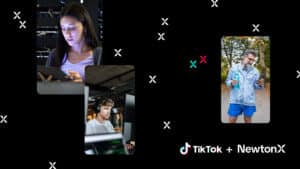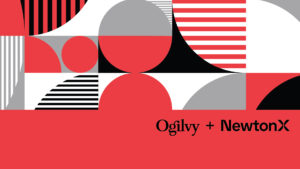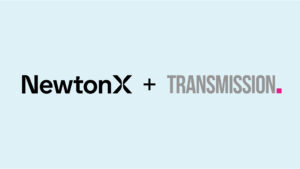
Forbes: The Economics Of Knowledge: How Much Is Expertise Worth Today?

The dot-com explosion of the late '90s and early aughts drastically altered the economics of knowledge. Read on how to learn how knowledge continues to evolve.
The article was originally posted on Forbes.
Prior to the internet, the vast majority of information was accessible only through education, mentorship and written literature. Today, however, the idea of picking up an encyclopedia is laughable; the vast majority of information on almost any topic is easily searchable, fully codified and available through numerous sources. This accessibility has altered the value of data and information, making it cheap or oftentimes even free.
As the volume of accessible information increases, the value of it decreases. In tandem with this value shift, however, the price of nonindexed, private, nonsearchable information has skyrocketed. For the sake of clarity, I will differentiate this type of data from “information” (raw information available online) by referring to it as “expert knowledge.” Expert knowledge is the tiny sliver of high-quality experience, proprietary information and niche knowledge that is not indexed on Google, Quora, Wikipedia or even in books. It’s the kind of knowledge on any given topic that only a few experts — or even just one or two — in the world possess, and this is what makes it so valuable.
An Inverse Relationship: Information Volume Versus Knowledge Value
The microeconomic law of supply and demand states that price determination in a market is a function of the availability of a product versus the demand for said product. While demand for information has grown over the past two decades, supply of information has outpaced demand. To illustrate this, try to remember the last time you made it to the third page of Google search results. Accordingly, the value of this information has gone down. For instance, the cost per gigabyte of data stored on a hard drive dropped from over $100,000 in 1980 to significantly less than 1 cent today.
The market is skewed toward granting access to and analysis of this type of information. Search engines like Google, content platforms like Quora or Wikipedia, data processing and storage platforms like Hadoop, and business intelligence tools like Tableau all essentially analyze and repackage already codified information to make it even more accessible.
The industry for nonaccessible expert knowledge, however, is decidedly smaller.
A Google For Niche, Unwritten Knowledge
Just as Google created the first search engine for codified content, winning over the economy of information 20 years ago, there is now a new opportunity to create a search engine for noncodified content: the “Google” of expert knowledge. This type of knowledge exists currently only through conversations, dialogue, teaching and learning. It’s the type of information that is held by only a few experts who have no motivation to translate the knowledge into searchable formats, which means that locating these people is nearly impossible. After all, if their expertise is not indexed on the internet, locating and finding them in order to access their knowledge is extremely difficult.
In the recent book Flights by Olga Tokarczuk, the narrator muses about Wikipedia: “We should have some other collection of knowledge, then, to balance [Wikipedia] out — its inverse, its inner lining, everything we don’t know, all the things that can’t be captured in any index, can’t be handled by any search engine.”
Indeed, we do need an inverse to Wikipedia, to codified content. We need a collection of knowledge that could help someone who needs to learn about an emerging technology, like blockchain, or a highly specific field, such as the separation of vanadium from titanium in titano-magnetite ore in Peru.
Already, businesses (and in particular, startups) are hiring for knowledge and skill rather than experience or advanced degrees. While platforms like LinkedIn provide public access to skills and job history, they do not provide a codified view of knowledge. To determine that, companies have to sift through laborious searches and screening interviews until they finally gain access to the one person who holds a set of skills and knowledge.
The first company to create a search engine for finding the one person with a precise set of knowledge in the world will end up winning a new market, one that is currently incredibly valuable. Then, we will enter a new era in the economy of knowledge.
Sign up for our newsletter, NewtonX Insights:
Related Content

Entrepreneur: Why Your Startup’s First Hires Need to Be Women
CEO Germain Chastel weighs in company culture, leadership, and why your first start-up hire should be a woman.
read more
Forbes: How New Data Strategies Can Transform Enterprise Market Research
Get smart on the new primary market research for enterprises.
read moreNewtonX Overview One-sheet
NewtonX is the world's leading B2B research company. Discover how we spotlight the world's brightest minds across 1.1billion professionals and 140 industries.
read moreThe Future Of EdTech – When AI Becomes the Teacher What Happens to Kids?
When AI and robots become the teacher, who has the most to gain, the most at risk? Read on to learn the future of EdTech.
read more
















![[Webinar Recap] Is B2B ready for synthetic sample? Yes – if you know how to augment it](https://www.newtonx.com/wp-content/uploads/2024/10/Webinar-synthetic-sample-greenbook-1024-1920px-feature-image-1-300x169.jpg)
![[Webinar Recap] The future of B2B research starts with the death of panels](https://www.newtonx.com/wp-content/uploads/2024/07/TKH-8.22-Karine-Pepin-webinar-1920px-feature-image-300x169.jpg)
![[Webinar Recap] Ditch the Bad Data with Greenbook’s Lenny Murphy as Your Guide](https://www.newtonx.com/wp-content/uploads/2024/05/tkh-greenbook-newtonx-lenny-murphy-cutting-research-cost-speakers-v-21920px-feature-image-300x169.jpg)